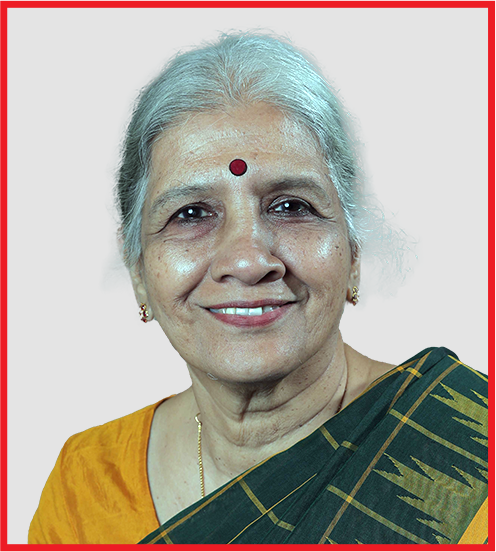Asirvad Micro Finance Limited
Approval Details:
| Approval Date | November 12, 2021 |
| Effective Date | November 12, 2021 |
| Approved by | Board of Directors |
| Version | Sec-1.0 |
| Policy Owner | IT Department/ Secretarial Department |
1.Introduction
As a Company, Asirvad Micro Finance Limited (AMFL) is committed to ensuring that the work environment at all its locations is conducive to fair, safe and harmonious relations between employees and other stakeholders (i.e., investors, customers, suppliers, interested publics etc). AMFL firmly believes that women have fundamental rights to (i) equality; (ii) life and to live with dignity; (iii) to practice any profession or to carry on any occupation, trade or business including a right to a safe environment free from sexual harassment.
AMFL is committed to provide an environment where women can work or interact with dignity and expect protection against sexual harassment. The offenders shall have to face the exemplary punishment for misconduct provided under his/her service rules, including termination of service and the legal proceedings according to the nature and seriousness of the offence. This Policy is created on the background of “The Sexual Harassment of Women at workplace (Prevention, Prohibition and Redressal) Act, 2013” and enunciates the Company’s approach to the issue of sexual harassment and its policy for dealing with any incidence of the same.
2.Scope of the Policy
This Policy applies to all workplaces and the individuals who are employed in a permanent or temporary capacity at any business location or deployed/visiting at customer site by the Company and to the stakeholders of the company. This Policy document will be made available to all Divisions associated with the Company with a clear objective to establish a similar approach in dealing with this issue.
3.Definitions
“Aggrieved woman”, in relation to a workplace, a woman, of any age whether employed or not, who alleges to have been subjected to any act of sexual harassment by the respondent.
“Respondent” means a person against whom the aggrieved woman has made a complaint.
“Employee” means a person employed at a workplace for any work on regular, temporary, ad hoc, or daily wage basis, either directly or through an agent, including a contractor, with or, without the knowledge of the principal employer, whether for remuneration or not, or working on a voluntary basis or otherwise, whether the terms of employment are express or implied and includes a co-worker, a contract worker, probationer, trainee, apprentice or called by any other such name.
“Employer”, in relation to any department, organisation, undertaking, establishment, enterprise, institution, office, branch or unit of the appropriate Government or a local authority, the head of that department, organisation, undertaking, establishment, enterprise, institution, office, branch or unit or such other officer as the appropriate Government or the local authority, as the case may be, may by an order specify in this behalf.
In any workplace not covered above, any person responsible for the Management, supervision, and control of the workplace.
“Appropriate Government” means, in relation to a workplace which is established, owned, controlled, or wholly or substantially financed by funds provided directly or indirectly— (A) by the Central Government or the Union territory administration, the Central Government; (B) by the State Government, the State Government.
In relation to any workplace not covered under above, and falling within its territory, the State Government
“Workplace” includes
- any department, organisation, undertaking, establishment, enterprise, institution, office, branch or unit which is established, owned, controlled or wholly or substantially financed by funds provided directly or indirectly by the appropriate Government or the local authority or a government company or a corporation or a co-operative society;
- any private sector organisation or a private venture, undertaking, enterprise, institution, establishment, society, trust, non-governmental organisation, unit or service provider carrying on commercial, professional, vocational, educational, entertainmental, industrial, health services or financial activities including production, supply, sale, distribution or service;
- hospitals or nursing homes;
- any sports institute, stadium, sports complex or competition or games venue, whether residential or not used for training, sports or other activities relating thereto;
- any place visited by the employee arising out of or during the course of employment including transportation by the employer for undertaking such journey;
- a dwelling place or a house;
A broad definition of “Sexual Harassment” consists of any physical or verbal behavior and any form of communication that has unnecessary, improper, or unwelcome sexual connotations. Sexual harassment may vary in form depending on circumstances. It may consist of, but not be limited to, any of the following:
- Unwelcome sexual advances, requests for sexual favours, display of sexual visuals, sexual audios, pornographic or obscene material and any other verbal or physical conduct of a sexual nature.
- Transmitting any message, by mail, telephone, e-mail etc. which is obscene, lewd, suggestive or blatantly sexual in nature.
- Any explicit or implicit communication wherein a sexual favour or demand, whether by words or actions, is made a condition for an individual’s employment, career progress, promotion etc. thereby creating a hostile environment.
- Sexually charged jokes or remarks and behaviour which have sexually oriented innuendoes.
- Consistent pattern of unnecessary physical contact, staring or targeting unreasonable attention at an individual in day-to-day dealings.
- Any pervasive pattern of behaviour which makes employees uncomfortable, insecure or feel humiliated or disadvantaged based on gender differentiation.
- Physical & sexual assault.
- As mentioned above, this is an indicative but not an exhaustive list of possible forms of sexual harassment.
Circumstances which may amount to sexual harassment
The following circumstances, among other circumstances may amount to Sexual harassment:
- Implied or explicit promise of preferential treatment in her employment; or
- Implied or explicit threat of detrimental treatment in her employment; or
Implied or explicit threat about her present or future employment status or - Interference with her work or creating an intimidating or offensive or hostile work environment for her; or
- Humiliating treatment likely to affect her health or safety.
Constitution of Internal Complaints Committee (ICC)
AMFL, being a Microfinance company does not have the required manpower at the branch level in accordance with constitution mentioned in the act (Annex I), considering it AMFL will create necessary Committees at Divisional /State level. Wherever ICCs are not formed at Divisional/State level due to the non-availability of suitable women employees, the ICC created at HO level will be the responsible Committee. The names of the members of HO Committee and their contact details are given in Annexure III. In case of removal/resignation of Presiding officer or Members of ICC, CHRO will initiate the appointment on the vacancies within a period of 14 days from the date of separation. Managing Director, Asirvad Micro Finance Limited (AMFL), will provide all necessary support to the work of this Committee.
5.Periodicity of Meeting
ICC will conduct meeting within 7 days from the date of complaint received from the aggrieved woman. In addition to that, the meeting will conduct regular basis, preferably at half yearly intervals (Calendar year). The participation of members in a meeting of the ICC may be either in person or through video conferencing or other audio visual means, as may be prescribed.
6.Constitution of Local Complaints Committee (LCC)
Notification of District Officer:
The appropriate Government may notify a District Magistrate or Additional District Magistrate or the Collector or Deputy Collector as a District Officer for every District to exercise powers or discharge functions under this Act. Constitution and jurisdiction of Local
Committee:
Every District Officer shall constitute in the district concerned, a Committee to be known as the Local Committee to receive complaints of sexual harassment from establishments where the Internal Committee has not been constituted due to having less than ten workers or if the complaint is against the employer himself.
7.How to make a complaint
i. Any aggrieved woman may make a complaint of sexual harassment in writing to ICC within a period of three months from the date of incident and in case of a series of incidents, within a period of three months from the date of last incident. If the aggrieved woman is not in position to write the complaint, the Presiding Officer, or any Member of the Internal Committee, shall provide all reasonable assistance to the woman for making the complaint in writing. The Committee may, for the reasons to be recorded in writing, extend the time limit not exceeding three months, if it is satisfied that the circumstances were such which prevented the woman from filing a complaint within the said period.
ii. Where the aggrieved woman is unable to make a complaint on account of her physical or mental incapacity or death or otherwise, her legal heir or such other person as may be prescribed may make a complaint under this section.
9. Complaint redressal procedure
a. Conciliation Proceedings
- ICC before initiating any inquiry may at the request of the aggrieved woman take steps to settle the matter between her and the respondent through conciliation. Provided that no monetary settlement shall be made as a basis of conciliation.
- If a settlement has been arrived at, ICC shall record the settlement so arrived and forward the same to the AMFL Management for taking action as specified in the recommendations.
- ICC shall make available copies of the recorded settlement to the aggrieved woman and the respondent. iv. Where a settlement has been arrived at as above, ICC shall not conduct any further inquiry.
b. Inquiry Proceedings
1.ICC will initiate the enquiry process in the below mentioned situations, in line with the domestic inquiry procedure being followed by the Company.
- a) If no settlement takes place under a conciliation proceeding and the respondent is an employee, proceed to make inquiry into the complaint. And in matter of non-employee the same may be forward to the Police.
- b) Where the aggrieved woman informs the Internal Committee, that any term or condition of the settlement arrived has not been complied with by the respondent, the Internal Committee shall proceed to make an inquiry into the complaint. And in matter of non-employee the same may be, forward to the Police.
In conducting the enquiry, a minimum of three members of the ICC including presiding officer shall be present.
2. Where both the parties are employees, the parties shall, during the course of inquiry, be given an opportunity of being heard and a copy of the findings shall be made available to both the parties enabling them to make representation against the findings before the Committee.
3. For the purpose of making inquiry, ICC shall have the same powers as are vested in a civil court the Code of Civil Procedure, 1908 (5 of 1908) when trying a suit in respect of the following matters, namely: – a) summoning and enforcing the attendance of any person and examining him on oath b) requiring the discovery and production of documents; and c) any other matter which may be prescribed.
4. The inquiry proceedings shall be completed within 30 days in normal scenario and may extend to a maximum period of ninety days from the date of commencement of the inquiry. Reasons for any delay than the above-mentioned time limit should be recorded in writing.
5. During the pendency of an inquiry, on the written request made by the aggrieved woman ICC may recommend to the employer to (a) transfer the aggrieved woman or the respondent to any other workplace (b) grant leave to the aggrieved woman (c) grant such other relief as may be prescribed. If the case is proved, the leave granted under this section will be in addition to the leave she would be entitled to otherwise. AMFL Management will implement the recommendations made by the ICC and forward an implementation report to the ICC.
6. On completion of the inquiry ICC shall provide a report of its findings to the Management within a period of ten days from the date of completion of the inquiry and such report be made available to the concerned parties.
7. If the ICC concludes after the inquiry that the allegations against the respondent have not been proved, then it shall recommend to the AMFL Management that no action need to be taken in the matter.
8. Where the Internal Committee, arrives at the conclusion that the allegation against the respondent has been proved, it shall recommend to the Management to (a) take action for sexual harassment against the respondent as per service rule (b) to deduct, from the salary or wages of the respondent such sum as it may consider appropriate to be paid to the aggrieved woman or to her legal heirs, as it may determine. If the Management is unable to make such deduction from the salary of the respondent due to his being absent from duty or cessation of employment it may direct to the respondent to pay such sum to the aggrieved woman.
9. Within sixty days necessary action will then be initiated by Management based on the recommendation of ICC, the circumstances and seriousness of the offence.
Other Points
In the case of a multi locational context, one of the Committee members will travel to the location in question as is required to ascertain the facts based on which the Committee would discuss and assess the complaint in question. The ICC shall have the right to terminate the enquiry proceedings or to give an expert decision on the complaint. If the complainant or respondent fails, without sufficient cause, to present herself or himself for three consecutive hearings convened by the presiding officer. Provided that such termination of expert order may not be passed without giving 15 days prior notice in advance to the party concerned.
10.Punishment for false or malicious complaint and false evidence
i. Where the Internal Committee arrives at a conclusion that the allegation against the respondent is malicious or the aggrieved woman or any other person making the complaint has made the complaint knowing it to be false or the aggrieved woman or any other person making the complaint has produced any forged or misleading document, it may recommend to the Management to take action against the woman or the person who has made the complaint as per service rule or as per the recommendations/decisions of ICC.
ii. Provided that a mere inability to substantiate a complaint or provide adequate proof need not attract action against the complainant. And the malicious intent on part of the complainant shall be established after an inquiry in accordance with the procedure prescribed before any action is recommended.
iii. Where the Internal Committee arrives at a conclusion that during the inquiry any witness has given false evidence or produced any forged or misleading document, it may recommend to the Management to take action as per service rule or as per the recommendations/decisions of ICC.
11. Determination of compensation
ICC while determining the compensation to be paid to the aggrieved woman shall take into account (a) the mental trauma, pain, suffering and emotional distress caused to the aggrieved woman (b) the loss in career opportunity due to the incident (c) medical expenses incurred by the victim for physical or psychiatric treatment (d) the income and financial status of the respondent (e) the feasibility of such payment in lump sum or in instalments.
12. Prohibition of publication or making known contents of complaint and inquiry proceedings and the penalty
Notwithstanding anything contained in the Right to Information Act, 2005 (22 of 2005), the contents of the complaint, the identity and addresses of the aggrieved woman, respondent and witnesses, any information relating to conciliation and inquiry proceedings, recommendations of the Internal Committee and the action taken by the Management under the provisions of this Act shall not be published, communicated, or made known to the public, press and media in any manner. Provided that information may be disseminated regarding the justice secured to any victim of sexual harassment under this Act without disclosing the name, address, identity, or any other particulars calculated to lead to the identification of the aggrieved woman and witnesses. Where any person entrusted with the duty to handle or deal with the complaint, inquiry or any recommendations or action to be taken under the provisions of this Act, publishes the above-mentioned details, shall be liable for penalty as per the service rule or as per the recommendations/ decisions of ICC.
13.Appeal procedure
i. Any person aggrieved from the recommendations of Internal Compliance Committee or non-implementation of such recommendations may prefer an appeal to the court or tribunal in accordance with the provisions of the service rules applicable to the said person or where no such service rules exist then, without prejudice to provisions contained in any other law for the time being in force, the person aggrieved may prefer an appeal in such manner as provided for under the Act.
ii. The appeal shall be preferred within a period of ninety days of the recommendations.
14.Duties of Management
AMFL Management will take all steps to: –
i. Provide a safe working environment at the workplace with shall include safety from the persons coming into contact at the workplace. Guidelines to ensure the safety of woman employees in AMFL are provided as Annex II.
ii. Display at any conspicuous place in the workplace, the penal consequences of sexual harassments, the order constituting the ICC, the names and addresses of its members, contact numbers and email addresses.
iii. Organise workshops and awareness programmes at regular intervals for sensitising the employees with the provisions of the Act and orientation programmes for the members of the Internal Committee in the manner as may be prescribed.
iv. Provide necessary facilities to the Internal Committee or the Local Committee, as the case may be, for dealing with the complaint and conducting an inquiry.
v. Assist in securing the attendance of respondent and witnesses before the Internal Committee.
vi. Make available such information about compliant filed to the Internal Committee or local committee, as it may require having regard to the complaint made.
vii. Provide assistance to the woman if she so chooses to file a complaint in relation to the offence under the Indian Penal Code (45 of 1860) or any other law for the time being in force.
viii. Cause to initiate action, under the Indian Penal Code (45 of 1860) or any other law for the time being in force, against the perpetrator, or if the aggrieved woman so desires, where the perpetrator is not an employee, in the workplace at which the incident of sexual harassment took place.
ix. Ensure that the career interests of the complainant are not adversely affected by virtue of the individual having drawn attention to such an offence.
x. Monitor the timely submission of reports by the Internal Committee.
xi. HOD and State Head at all locations will also be expected to be sensitive to any circumstances or behaviours among their colleagues which appear to go against the Company Policy on this matter. In case they become aware of any such incidence, they will immediately inform the head of the Committee and take appropriate action as advised
Cases not covered by or requiring relaxation of these rules or where doubt has arisen regarding the interpretation thereof shall be referred to myhrsupport@asirvad.in and HR shall consider each case on its merit and submit it to the HOD/COO whose decision in such cases shall be final.
Internal Complaints Committee
1. Constitution:
ICC will consist of members nominated by the employer.
a. Presiding Officer: Presiding Officer shall be a Women employed at a senior level at workplace from amongst the employees; (if senior level woman employee is not available, Presiding Officer shall be nominated from other Offices or Administrative Units of the Workplace of the same Employer or other Dept. or Organization).
b. Two female members shall be appointed amongst employees preferably committed to the cause of women or who have had experience in the following field.
(i) In social work
(ii) with legal knowledge.
c. one member from amongst non-governmental organizations or associations committed to the cause of women or a person familiar with the issues relating to sexual harassment:
d. Half of the members so nominated shall be Women.
2. Tenure:
The Presiding Officer and every member of ICC shall hold office for such period, not exceeding three years, from the date of their nomination as may be specified by the employer. Any vacancy arising due to termination, resignation, suspension, transfer or any other similar reason shall be filled by the Committee as per the provisions of the Act, from amongst the eligible staff of the company.
3. Fees or allowance for Members of Internal complaints Committee:
The member appointed from Non-Governmental Organization/associations shall be entitled to a fee or allowance may be fixed by the company from time to time, for holding the proceedings of internal complaints Committee.
4. Removal from Office:
The Presiding officer or any member can be removed from the Committee if such Presiding Officer or the Member
a) contravenes the provisions relating to secrecy (section 16 of the Act) or
b) has been convicted for an offence or an inquiry into an offence under any law for the time being in force is pending against him/her or
c) he/she has been found guilty in any disciplinary proceedings or a disciplinary proceeding is pending against him or
d) has so abused his/her position as to render his continuance in office prejudicial to the public interest.
5. Duties & Responsibilities:
Presiding Officer or members
a) Should render all assistance to the aggrieved woman to make the complaint in writing where she is unable to do so on her own
b) Take steps to settle the matter through conciliation before initiating inquiry if the aggrieved woman so requests
c) Adhere to the inquiry process faithfully
d) Ensure that the rights granted to the aggrieved woman are made available to her
e) The privacy of the aggrieved woman is respected, and secrecy maintained over the proceedings at all stages
f) Cause criminal complaint to be filed if so warranted
g) Preserve all records for inspection by authorized official and
h) Make available statistical details of number of cases filed and disposed of.
Safety Guidelines for Women Employees at Workplace
i. At Asirvad, we believe that safety of our women employees is very important, and we ensure that all arrangements are made to create a safe, un-biased and women- friendly environment. Some of the rules that are followed in our offices currently, with respect to the safely of all our employees and women.
ii. No women employee is allowed to work beyond 7.30 pm in the Company exceptions would be an extension by 1 hour.
iii. If there is any extension to working hours, the employee needs to get an approval from the HOD stating the time she would like to extend and reason with an intimation to the Admin.
iv. Admin- in-charge to be informed about it 1 day in advance in normal cases and 2 hours in advance to office hours in case of emergency.
v. Admin-in-charge to intimate the Security in the office about the stay of employee in the office.
vi. Admin-in-charge to book a cab for the drop of women employees from an official travel agent.
vii. Details of cab, driver to be registered in the register along with a photocopy of driver’s ID and a signature need to be obtained from driver in the register.
viii. In case of women and men employees are getting dropped in same cab, women employee to be dropped first and men employees last, to see women employees reach home safe.
ix. Women employees shall inform administration in-charge of the Corporate Office / Divisional Office Branch Office / post reaching home.
x. Women employees are advised to save the mobile numbers of admin in-charges, local police station, women protection cell of police in fast dial mode in mobile phones so that they can quickly access them in case of emergency.
xi. In case of women employees travelling out of station early in the morning/ late evenings, women employees to be provided drop to airport and pick up from destination airport by office cab or official cab agency, cab driver’s name and number to be given to them in advance.
xii. Training on self-defence and to face emergencies will be given to women employees once in 6 months and awareness camps on emergencies are given once in 6 months.
Internal Complaints Committee
| Sl No | Name | Role | Contact Details | Location |
| 1 | Ms. Neena K P | Presiding Officer | Mobile: 91500 91452 Email ID: headhr@asirvad.in |
Valapad |
| 2 | Ms. Neha Sharma | Member | Mobile: 88386 54641 Email ID: neha.sharma@asirvad.in |
Chennai |
| 3 | Ms. Aparna Menon | Member | Mobile: 93459 60647 Email ID: cs@asirvad.in |
Valapad |
| 4 | Mr. K S Sugesh Ram | Member | Mobile: 93459 60644 Email ID: sugesh.ram@asirvad.in |
Valapad |
| 5 | Ms. Praseeda C P | Member | Mobile: 91500 30962 Email ID: headhr.gl@asirvad.in |
Thriprayar |
| 6 | Mr. Pappuraj | External Member | Mobile:9841093943 Email: vpappuraj@gmail.com |
Chennai |
































